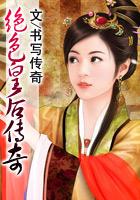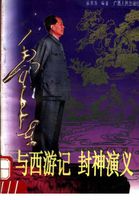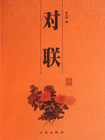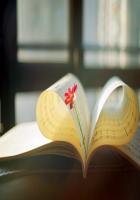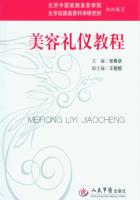Difficulties regarding this desired union now arose. The young lady, having been bred in great simplicity and ignorance, had never heard of such a country as England, or such a person as the Duke of York; and therefore had no mind to adventure herself in a distant land, or wed a man of whom she knew nought. Moreover, she had betrayed an inclination to spend her days in the seclusion of a convent, and had no thought of marriage. Her mother, the Duchess of Modena, then regent, by reason of her husband's death and her son's minority, was anxious for so advantageous an alliance. And being unable to gain her daughter's consent, she sought the interference of the pope, who wrote to the young princess, that compliance with her mother's request would "most conduce to the service of God and the public good." On this, Mary Beatrice Eleonora, Princess d'Este, daughter of the fourth Duke of Modena, consented to become Duchess of York. Whereon the Earl of Peterborough made a public entry into Modena, as ambassador extraordinary of Charles II.;and having agreed to all the articles of marriage, wedded her by proxy for the royal duke.
Meanwhile, news that the heir to the crown was about to wed a papist spread with rapidity throughout the kingdom, carrying alarm in its course. If sons were born of the union, they would, it was believed, undoubtedly be reared in the religion of their parents, and England in time became subject to a catholic king.
The possibility of such a fate was to the public mind fraught with horror; and the House of Commons, after some angry debates on the subject, presented an address to the king, requesting he would abandon this proposed marriage. To this he was not inclined to listen, his honour being so far involved in the business; but notwithstanding his unwillingness, his councillors urged him to this step, and prayed he would stop the princess, then journeying through France on her way to England. This so incensed him that he immediately prorogued parliament, and freed himself from further interference on the subject.
On the 21st of November, 1673, the future duchess landed at Dover, where the duke awaited her, attended by a scant retinue.
For the recent protestations, made in the House of Commons against the marriage, having the effect of scaring the courtiers, few of the nobility, and but one of the bishops, Dr. Crew of Oxford, ventured to accompany him, or greet his bride. On the day of her arrival the marriage was celebrated, "according to the usual form in cases of the like nature." The "Stuart Papers"give a brief account of the ceremony. "The Duke and Duchess of York, with the Duchess of Modena her mother, being together in a room where all the company was present, as also my Lord Peterborough, the bishop asked the Duchess of Modena and the Earl of Peterborough whether the said earl had married the Duchess of York as proxy of the duke? which they both affirming, the bishop then declared it was a lawful marriage."This unpopular union served to strengthen the gathering storm;Protests against popery were universally heard; an article in the marriage settlement, which guaranteed the duchess a public chapel, was broken; and the duke was advised by Lord Berkshire to retire into the country, "where he might hunt and pray without offence to any or disquiet to himself." This counsel he refused to heed. Until his majesty should command him to the contrary, he said, he would always attend upon him, and do such service as he thought his duty and the king's security required of him. His enemies became more wrathful at this reply, more suspicious of popery, and more fearful of his influence with the king, They therefore sought to have him removed from his majesty's councils and presence by act of parliament.
Consequently, when both Houses assembled on the 7th of January, 1674, the lords presented an address to the monarch, praying he would graciously issue a proclamation, requiring all papists, or reputed papists, within five miles of London, Westminster, or Southwark, to depart ten miles from these respective cities, and not return during this session of Parliament. A few days afterwards an act was introduced into the House of Commons proposing a second test, impossible for catholics to accept, the refusal of which would not only render them incapable of holding any office, civil or military, or of sitting in either House of Parliament, but "of coming within five miles of the court." This unjust bill, to which, if it passed both houses, Charles dared not refuse assent, threw the court and country into a state of renewed excitement. Knowing it was a blow levelled at the duke, his friends gathered round him, determined to oppose it by might and main; and after great exertions caused a clause to be inserted excepting his royal highness from the test. This was ultimately carried by a majority of two votes, which, says Clarke, "put the little Earl of Shaftesbury so out of humour, that he said he did not care what became of the bill, having that proviso in it."This noble earl, who was chief among the royal duke's enemies, was a prominent figure in the political history of the time. Mr.
Burnet tells us his lordship's strength lay in the knowledge of England, and of all considerable men. "He understood," says the bishop, "the size of their understandings and their tempers; and he knew how to apply himself to them so dexterously, that though by his changing sides so often it was very visible how little he was to be depended on, yet he was to the last much trusted by all the discontented party. He had no regard to truth or justice."As rich in resources as he was poor in honour, he renewed a plan for depriving the Duke of York from succession to the crown;which, though it had failed when formerly attempted, he trusted might now succeed. This was to declare the Duke of Monmouth the king's legitimate son and heir to the throne of England, a scheme which the ambitious son of Lucy Walters was eager to forward.


